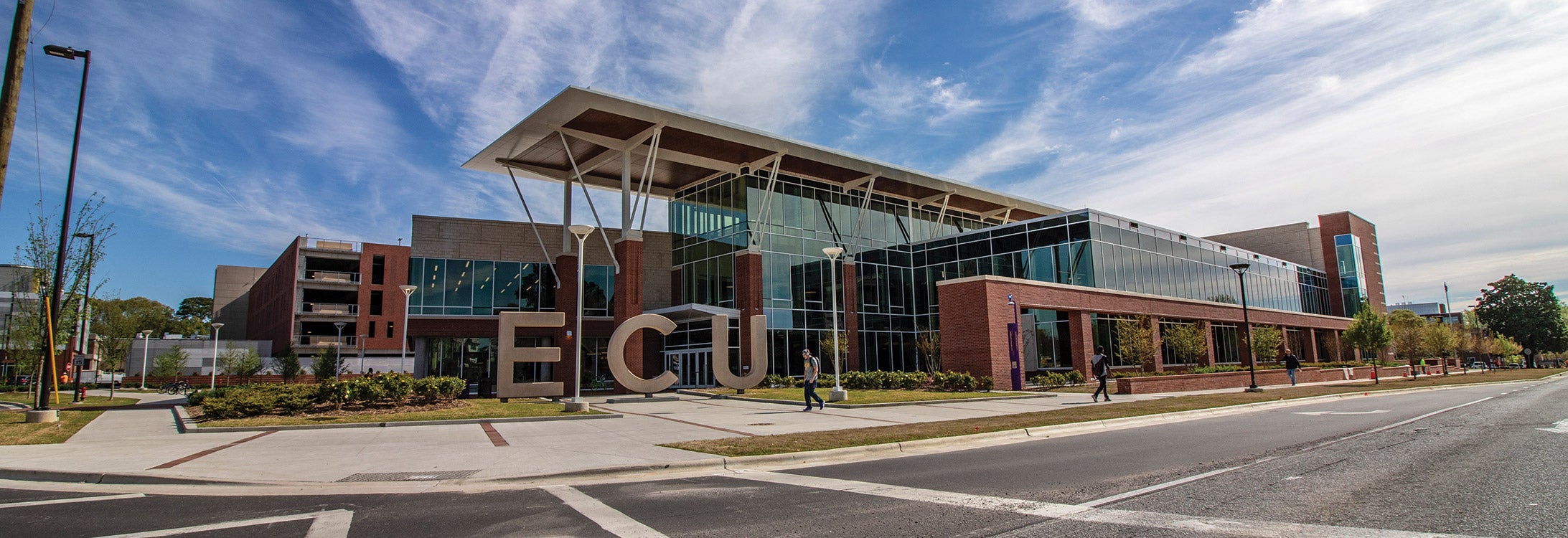ECU Report
Back to campus for spring semester
ECU officials plan to bring students back to campus and resume in-person classes for the spring semester — so long as COVID-19 cooperates.
The spring academic calendar, published in the fall, remains in effect. Classes will start Jan. 19 and finish April 27. ECU will have no spring break.
Final exams will take place April 29-May 6, and spring commencement is scheduled for May 7.
ECU will offer a mix of in-person, hybrid and online classes for undergraduate and graduate students. Officials will work to ensure any students who want to take courses remotely will have the opportunity to do so.
Classes will return to the normal 15-week semester rather than the 7.5-week block schedule used this fall.
ECU also plans to provide the option of on-campus living in the spring at reduced capacity. All rooms will be single occupancy. ECU has waived the residency requirement for freshmen for the spring semester.
Officials will also establish significant capacity for on-campus isolation and quarantine, update plans for COVID-19 testing and develop a vaccination plan for students.
– ECU News Services
Study finds ECU’s statewide economic impact exceeds $2.5B
ECU packs an annual economic punch across the state of more than $2.5 billion, a 2019 study led by a team of Pirate researchers found.
In total, the university supports more than 27,000 jobs, with nearly 96% of those jobs in eastern North Carolina.
Conducted by ECU economics professors Meghan Millea and Haiyong Liu and former College of Business director of professional services and research James Kleckley, the study tracked the influence of university-related spending through university operations, student spending, visitor spending, capital expenditures and alumni dividend.

Millea
Overall, university operations spending accounted for 71.5% of the total economic impact. That includes funds for employee salaries and purchases of goods and services to maintain daily operations.
Student spending was second on the list, accounting for 14.6% of total impact, while capital expenditures and visitor spending accounted for 5% each.
“Universities are economic engines,” Millea said. “ECU’s instruction prepares our graduates for careers, expands their minds through enriching programs and improves their quality of life through its research and creative endeavors. This study quantifies how ECU’s spending on these transformative functions impacts the state and regional economies in terms of output, income and employment.”
The university’s research enterprise provided an $86 million economic output, according to the study, while supporting 912 jobs. ECU researchers have set new benchmarks in productivity over the last five years, reaching a record-high $74 million in sponsored program funding in fiscal year 2019.
Additionally, the university has increased its support of Pirate-backed small-business ventures, ranging from medical imaging startup companies to student-led graphic arts companies. During the 2019 fiscal year, the university assisted 32 startup companies through the Small Business and Technology Development Center at ECU; supported 29 student-led microenterprises; and helped create or retain 336 small business jobs.
Overall, ECU’s alumni base of 170,000 accounted for $75.5 million in spending across the state, including $6.3 million in eastern North Carolina.
Data for the report was gathered and analyzed before the coronavirus pandemic. Like many academic institutions across the country, ECU and its economic impact have been affected by the coronavirus.
The full report, along with the research team’s methodology, is at go.ecu.edu/economy.
– Matt Smith
